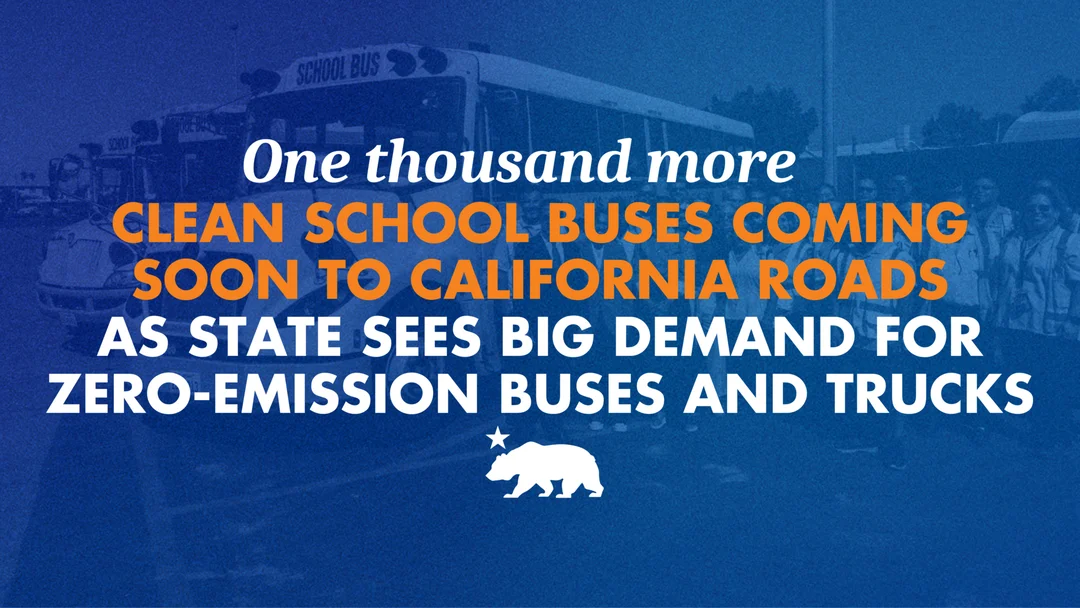
How Is California Revolutionizing School Transportation for a Cleaner Tomorrow?
In a bold move amid federal uncertainties, California is accelerating its transition to zero-emission vehicles, particularly in school transportation. This initiative highlights the state's unwavering commitment to combating climate change and protecting public health, especially for children exposed to harmful pollution.
At the forefront is Governor Gavin Newsom's announcement of a $500 million investment to deploy an additional 1,000 electric school buses across the state. This effort targets over 130 rural, low-income, and disadvantaged school districts, providing not only the buses but also essential charging infrastructure. With more than 500 new charging stations added to the existing 200, California is building a robust network to support these clean vehicles. This expansion stands in stark contrast to other states, where federal funding freezes from the Environmental Protection Agency have caused delays and cancellations in similar projects. For instance, over 500 districts nationwide have been left in limbo, waiting for $1 billion to fund over 3,400 electric buses, leading to widespread confusion and setbacks.
California's leadership in this area is undeniable, boasting the largest fleet of electric school buses in the U.S., with over 2,300 already funded and 1,100 in active use. Some districts have even achieved 100% electric fleets, showcasing the feasibility of this shift. Liane Randolph, chair of the California Air Resources Board, emphasized the importance of this initiative in an email, stating, "California is committed to continuing efforts to reduce children's exposure to toxic diesel pollution through the deployment of zero-emission school buses." She highlighted how state funding from the cap-and-trade program is crucial, especially as federal support wanes. This program, which caps carbon emissions and requires permits for polluters, funds these efforts and aligns with California's ambitious goals of carbon neutrality by 2045 and mandating zero-emission buses for nearly all new public school fleets by 2035.
Comparatively, while other states struggle with federal rollbacks, California's proactive policies extend beyond buses to include emissions limits on cars, trucks, and even lawn mowers. However, these measures face challenges, such as President Donald Trump's executive order directing the Department of Justice to challenge state climate laws. Governor Newsom has fiercely countered this, accusing Trump of "turning back the clock" and affirming that California's efforts "won't be derailed." This determination is evident in the surging demand for zero-emission vehicles, with the state's Clean Truck and Bus Voucher Incentive Project seeing a 177% increase from 2023 to 2024. In February alone, over 200 zero-emission trucks and buses were deployed with $31 million in incentives, demonstrating how these investments are reducing greenhouse gas emissions equivalent to taking 4,000 cars off the road annually.
On the Central Coast, districts like South Monterey County Joint Union High School District and Pajaro Valley Unified School District are among the beneficiaries, further illustrating the statewide impact. These buses are expected to cut 18,000 metric tons of emissions each year, directly benefiting pollution-burdened communities. California's role as a U.S. trendsetter in climate policy not only addresses environmental concerns but also sets a model for economic and health benefits, proving that clean transportation is both achievable and essential.
In summary, California's push for electric school buses underscores a critical step toward a sustainable future, reducing pollution and fostering healthier communities. How might this influence other states to follow suit? We invite readers to share their thoughts: Do you support these green initiatives, and what challenges do you see in implementing them elsewhere? Leave a comment below, share this article, and join the conversation on cleaner transportation.